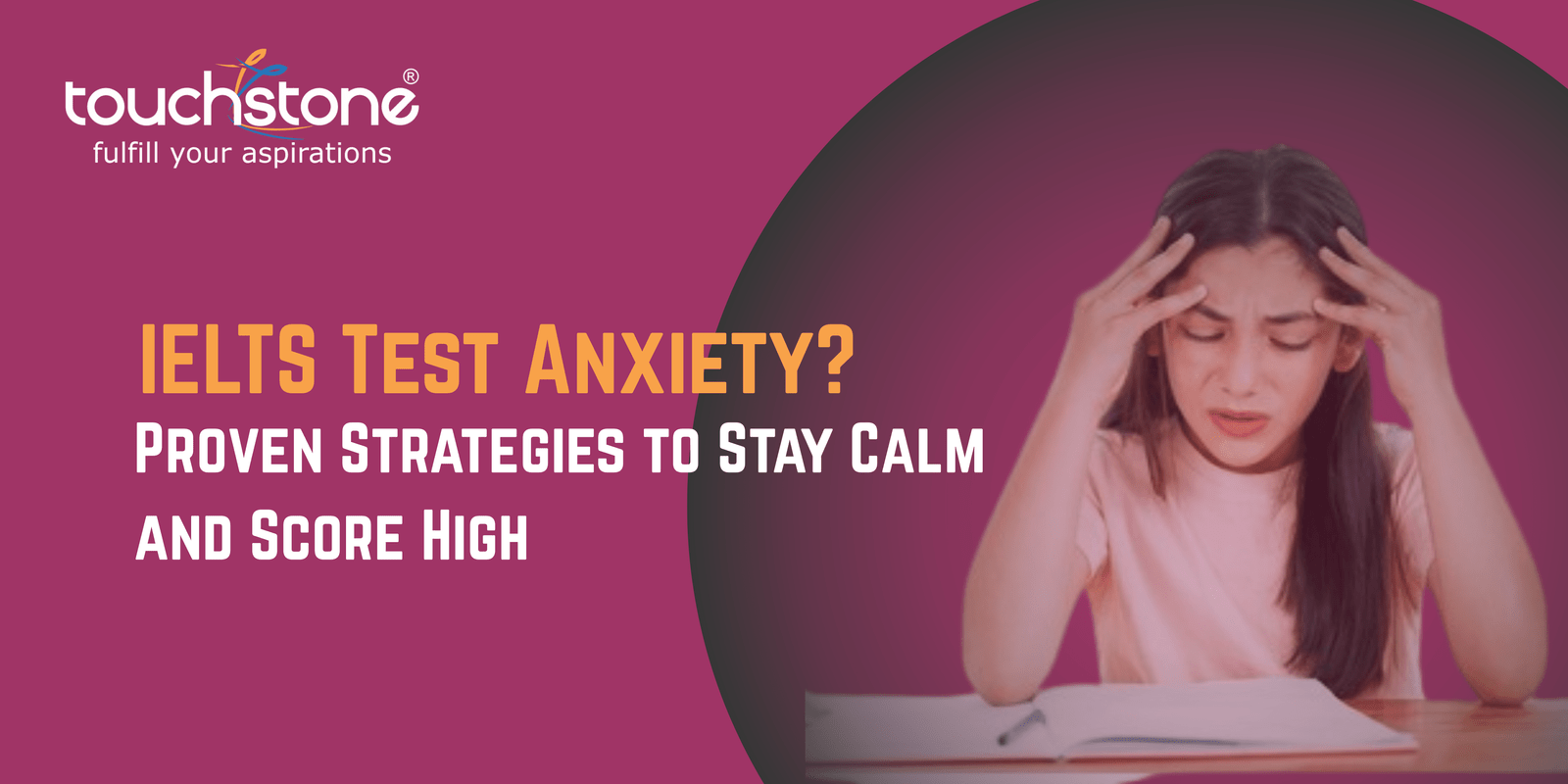Scoring Band 7 or higher in IELTS is a goal for many students who want to study, work, or settle abroad. But achieving this score is not just about studying harder—it’s about studying smarter. The IELTS exam is designed to test not only your knowledge of English but also your ability to use it effectively under pressure.
Many students struggle because they don’t fully understand the test format, lack proper strategies, or waste time using unreliable resources. The good news is that with the right preparation plan, anyone can aim for Band 7+. From mastering listening techniques to improving your writing structure, this guide will help you build the skills and confidence needed to achieve your dream score.
1. What is the IELTS test format, and why should I know it?
The IELTS exam is divided into four sections: Listening, Reading, Writing, and Speaking. Each section tests different skills and has strict time limits.
- Listening (30 minutes): You’ll hear four recordings and answer 40 questions.
- Reading (60 minutes): Three long passages with 40 questions testing comprehension, skimming, scanning, and inference.
- Writing (60 minutes): Two tasks—Task 1 (data description or letter) and Task 2 (essay).
- Speaking (11–14 minutes): A face-to-face interview with three parts—introduction, cue card, and discussion.
Knowing the format helps you manage your time, understand what examiners expect, and avoid confusion during the test. Many students underperform simply because they weren’t fully aware of the exam structure.
2. How can I improve my IELTS Listening score?
Scoring high in the IELTS Listening section requires both practice and active listening techniques. Here’s how you can strengthen your skills:
- Listen daily to podcasts, TED Talks, BBC News, or English audiobooks. These expose you to different accents and speaking speeds.
- Practice identifying keywords and synonyms, since questions are rarely word-for-word from the audio.
- Train yourself to predict answers by reading questions before the recording plays.
- Review your mistakes carefully after practice tests—were you distracted, too slow, or misheard a word? Correct these habits.
The more you immerse yourself in authentic English audio, the sharper your listening comprehension will become.
3. What strategies work best for IELTS Reading?
The IELTS Reading section is often challenging because of time pressure and complex passages.
To excel:
- Use skimming to grasp the main idea of each paragraph quickly.
- Use scanning to locate names, dates, numbers, or keywords without re-reading everything.
- Pay attention to the writer’s opinion or tone—this is critical for True/False/Not Given and Yes/No/Not Given questions.
- Expand your reading habit with newspapers, journals, and academic articles. This builds familiarity with IELTS-style content.
- Always practice under timed conditions (60 minutes, 40 questions).
Remember: You don’t need to understand every single word—you just need to answer correctly within the time limit.
4. Why is vocabulary important for IELTS?
A strong vocabulary can boost both your Writing and Speaking scores. Examiners look for candidates who can use a wide range of words naturally and appropriately.
- Learn topic-specific vocabulary from common IELTS themes: education, environment, health, technology, and culture.
- Practice paraphrasing—saying the same idea in a different way. For example, “children” can be replaced with “youngsters” or “the younger generation.”
- Avoid overusing rare or complicated words incorrectly; clarity and natural usage matter more.
- Use vocabulary notebooks or apps like Quizlet to build and revise word lists regularly.
Good vocabulary shows you can express complex ideas clearly, which is essential for Band 7+.
5. How should I prepare for IELTS Writing tasks?
The IELTS Writing section is often the hardest for students. Here’s how to approach it:
- Task 1 (Academic): Practice describing trends, comparisons, and summaries of graphs, charts, or processes. Keep your language formal and factual.
- Task 1 (General Training): Learn to write letters in different tones—formal (to a company), semi-formal (to a colleague), and informal (to a friend).
- Task 2 (Essay): Always plan before writing. Structure your essay with a clear introduction, 2–3 body paragraphs, and a conclusion. Support ideas with examples, avoid repeating the same words, and proofread at the end.
Many students lose marks due to poor coherence, grammar, or vocabulary—so practice writing daily and get feedback to improve.
6. How do I become fluent in IELTS Speaking?
Fluency is not about speaking fast—it’s about speaking smoothly, confidently, and clearly.
- Practice talking for two full minutes on different topics using cue cards.
- Record yourself and check for hesitation, fillers (like “umm,” “you know”), and unclear pronunciation.
- Expand your answers instead of giving one-line responses. For example:
- Question: “Do you enjoy reading?”
- Weak answer: “Yes, I do.”
- Strong answer: “Yes, I really enjoy reading, especially historical fiction, because it allows me to understand different cultures and time periods.”
- Speak with friends, join English discussion groups, or even practice in front of a mirror.
Confidence and coherence can significantly raise your band score.
7. Does grammar really affect my IELTS band score?
Yes, grammar is one of the four scoring criteria in both IELTS Writing and IELTS Speaking.
- Review basic grammar rules—tenses, subject–verb agreement, and articles.
- Practice complex sentences, but don’t force them if you’re unsure. It’s better to write a simple, correct sentence than a wrong, complex one.
- Focus on accuracy first, variety second. Mistake-free language creates a stronger impression.
- Use grammar apps or ask teachers to identify patterns in your mistakes.
Remember: Even one repeated grammar mistake can lower your score, so consistent practice is key.
8. Should I practice under IELTS-like exam conditions?
Definitely. Many students perform well at home but panic during the real exam because they never practiced under strict timing.
- Take full-length mock tests for Listening, Reading, and Writing with a timer.
- Practice speaking with a partner or coach in a real interview-style setting.
- Avoid distractions—no phones, no pauses, no “checking answers later.”
- Build stamina: the IELTS test lasts around 2 hours and 45 minutes (not including breaks), so your brain needs to stay sharp throughout.
Practicing under real conditions helps you stay calm and focused on test day.
9. Which IELTS resources are most reliable?
Not all study materials are equal. To avoid wasting time, stick to trusted resources:
- Cambridge IELTS books (1–18): Real past papers for authentic practice.
- IDP resources: Free online tests, practice papers, and official guides.
- IELTS Prep apps: Many official apps provide exercises, vocabulary, and sample tests.
Be careful with random websites or social media tips—they may contain incorrect information. Using reliable sources ensures you’re practicing the right way.
10. Is expert coaching really necessary?
While self-study can help you reach a Band 5-6, aiming for Band 7+ usually requires expert guidance. That’s where structured coaching makes a real difference.
- Targeted Feedback: Professional trainers can spot weaknesses you might overlook during self-practice.
- Personalized Strategies: Instead of one-size-fits-all methods, expert guidance gives you study plans designed for your specific challenges.
- Real Exam Practice: Mock speaking tests with trained examiners help you experience the pressure of the actual test.
- Writing Evaluations: Detailed assessments from experts highlight exactly where you lose marks and how to improve.
With platforms like Touchstone’s online learning portal, students get the flexibility of self-study combined with the advantage of expert feedback. This blend ensures you learn at your own pace while still receiving professional guidance to cross that final leap from Band 5 to Band 7+.
Scoring Band 7 in IELTS is possible for any dedicated student. By mastering the format, building vocabulary, improving fluency, and seeking expert guidance, you can achieve your dream score. At Touchstone Educationals, our trainers provide personalized feedback, exam strategies, and practice under real test conditions. Join us today and start your journey to IELTS Band 8+ success. Thousands of our students have moved from Band 5-6to 7+ thanks to structured coaching, personalized attention, and proven teaching methods.




